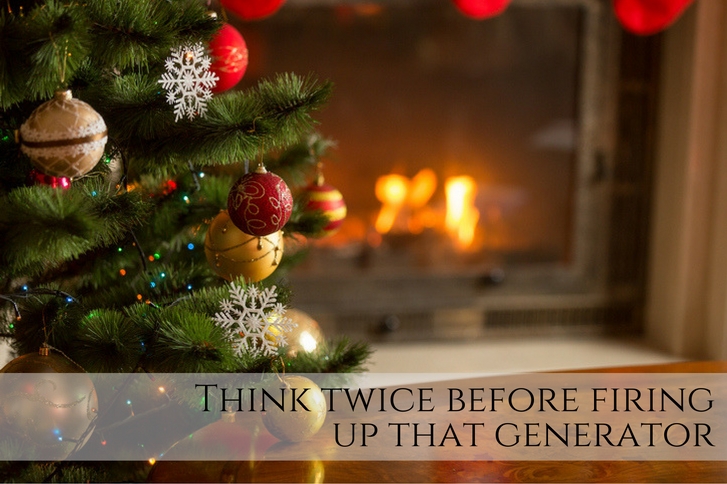When the power goes out and it’s 20 ° outside (or colder), it’s extremely tempting to fire up the generator, kerosene or gas stove or even a charcoal-burning grill indoors to stay warm. After all, every blanket in the house can only do so much.
But, the Kentucky Department for Public Health (DPH), which is part of the Cabinet for Health and Family Services (CHFS), urges Kentuckians to think twice before lighting up these and other sources of heat in order to prevent carbon monoxide exposure.
According to the Kentucky Poison Control Center, cases of carbon monoxide poisoning significantly increase during the winter months. Check out the tips below to prevent exposure in your home.
Avoiding carbon monoxide poisoning:
- Don’t use a generator, charcoal grill, camp stove or other gasoline or charcoal-burning device inside your home, basement or garage or near a window.
- Don’t run a car or truck inside a garage attached to your house, even if you leave the exterior door open.
- Don’t burn anything in a stove or fireplace that isn’t properly vented.
- Don’t heat your house with a gas oven.
- Seek immediate medical attention if you suspect carbon monoxide poisoning and are experiencing symptoms of carbon monoxide poisoning. Early symptoms include: headache, nausea, vomiting and fatigue.
- Install a battery-operated carbon monoxide detector in your home or replace the battery when you change the time on your clocks each spring and fall for daylight savings time. If the detector sounds, leave your home immediately and call 911.
Additionally, the Centers for Disease Control and Prevention (CDC) reminds us to have the heating system, water heater and any other gas, oil, or coal burning appliances serviced by a qualified technician every year.
If the power goes out during a bad storm or other event, and your home is suddenly without heat, the Consumer Energy Center provides the following safety tips and alternatives for staying warm:
- Listen to a battery-powered radio or TV, especially for news at the top of each hour, to find out when the power might be restored.
- Dress to stay warm – wear layers, including a sweater, sweatshirt or jacket, gloves and a knit hat.
- Leave a light on so you’ll know when the power is restored.
- If you have a regular wood stove or fireplace, you can use it for heat. DO NOT USE KEROSENE HEATERS, BBQs, OR ANY EXTERIOR HEAT SOURCE INSIDE YOUR HOME.
- Check on your elderly neighbors or those who may have medical conditions or use medical machinery that operates on electricity. Make sure they are dressed appropriately warm. If someone needs to have machinery that operates on electricity, move her to a place where electricity is working, i.e. a community medical campus.
- If you have a generator, do not connect it to your home’s power system unless it has been properly installed and disconnects you from the main power grid when it is operating. If you do not disconnect from the power grid, you can be sending electricity back down the lines; not just to your home. That could be deadly for power company workers.
- If you have to go out, drive carefully. Remember that traffic signals may be out during a power outage. Consider each intersection to be a four-way stop and drive defensively. If it is snowing, beware of icy road conditions.
Check out additional advice for surviving a winter storm via Common Sense Home here.

